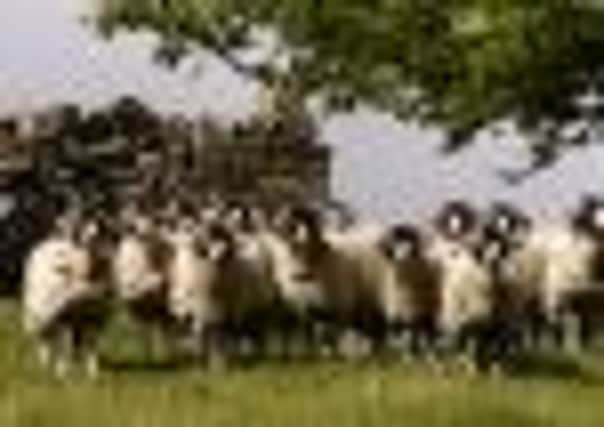Worrying increase in rustling as meat prices continue to rise


Statistics released by NFU Mutual, which insures three-quarters of the UK’s farmers, show the region has seen a significant rise in the number of cases and related claims.
In the north east region alone – which includes North Yorkshire – the cost of livestock rustling more than doubled in 2011, leaving a bill of more than £1.4m for the region’s farmers.
Advertisement
Hide AdAdvertisement
Hide AdAn NFU Mutual spokesman said: “During the last decade, livestock rustling has been at historically low levels, while rural thieves concentrated on easy pickings – stealing quad bikes, tractors and expensive power tools from farms.
“Now, however, high meat prices and improved security on farm vehicles appear to be leading to a resurgence in livestock rustling. In the last year we have seen a worrying increase in thefts in all livestock-rearing parts of the UK.
“As the UK’s leading rural insurer, NFU Mutual sees a close correlation between the price of commodities and the level of theft.
“In recent years it has seen thefts of metal rocket when scrap prices have been high; thefts of diesel from farms increase in line with oil price increases, and now the same thing appears to be happening with livestock.”
Advertisement
Hide AdAdvertisement
Hide AdAcross the UK, the worst-affected region is Northern Ireland, followed by the North East of England, the North West and the South West. As well as sheep, NFU Mutual has had claims for hundreds of stolen cattle and pigs, as well as thousands of game birds.
The majority of stolen livestock is believed to end up in the food chain, often being slaughtered, butchered or stored in unhygienic conditions before being sold on. With meat prices on the rise – lamb chops increased from £10.39 per kg four years ago to £14.24 per kg in July last year – there is a clear temptation for thieves to find meat to sell.
“Rustling is one of the world’s oldest crimes,” said the firm’s spokesman. “Since the first cavemen kept goats, rustling has been a feature of farming.
“However, the worrying trend today is that instead of small numbers of animals being taken in one attack, we are increasingly seeing very large numbers of sheep being stolen.
Advertisement
Hide AdAdvertisement
Hide Ad“Last year, a worrying number of claims involved over 60 sheep taken in one go and we had the largest theft to date – 1,500 sheep stolen from Lincolnshire.”
So far this year, North Yorkshire Police has had 20 reports of sheep thefts, totalling 193 sheep with a value of around £33,000.
PC Mark Ayre, a rural officer based in Knaresborough, said: “This type of crime tends to go unreported when only one or two go missing due to the tendency for them to wander and a reluctance by farmers to get police involved.
“The majority of offences and those involving the greatest numbers are to the west of the county from the open moors between Settle and Skipton; this makes it even harder to detect as once the animals have been turned out in spring they are often left to roam for several months before they are collected in.”
Advertisement
Hide AdAdvertisement
Hide AdOne success story has been in a case involving two offences of stealing pedigree Texel rams in the Settle area, as well as further thefts in Greater Manchester and Lancashire Police. The culprit, Ashley James Alderson, 26, of Sandy Lane, Barrowford, Nelson, was not slaughtering the animals but using them to replace his own livestock which had either died or been sold on.
He pleaded guilty to four charges of theft and asked for seven others to be considered. He is due to be sentenced at Skipton Magistrates’ Court next Friday.